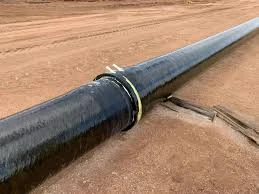
-
 Afrikaans
Afrikaans -
 Albanian
Albanian -
 Amharic
Amharic -
 Arabic
Arabic -
 Armenian
Armenian -
 Azerbaijani
Azerbaijani -
 Basque
Basque -
 Belarusian
Belarusian -
 Bengali
Bengali -
 Bosnian
Bosnian -
 Bulgarian
Bulgarian -
 Catalan
Catalan -
 Cebuano
Cebuano -
 China
China -
 China (Taiwan)
China (Taiwan) -
 Corsican
Corsican -
 Croatian
Croatian -
 Czech
Czech -
 Danish
Danish -
 Dutch
Dutch -
 English
English -
 Esperanto
Esperanto -
 Estonian
Estonian -
 Finnish
Finnish -
 French
French -
 Frisian
Frisian -
 Galician
Galician -
 Georgian
Georgian -
 German
German -
 Greek
Greek -
 Gujarati
Gujarati -
 Haitian Creole
Haitian Creole -
 hausa
hausa -
 hawaiian
hawaiian -
 Hebrew
Hebrew -
 Hindi
Hindi -
 Miao
Miao -
 Hungarian
Hungarian -
 Icelandic
Icelandic -
 igbo
igbo -
 Indonesian
Indonesian -
 irish
irish -
 Italian
Italian -
 Japanese
Japanese -
 Javanese
Javanese -
 Kannada
Kannada -
 kazakh
kazakh -
 Khmer
Khmer -
 Rwandese
Rwandese -
 Korean
Korean -
 Kurdish
Kurdish -
 Kyrgyz
Kyrgyz -
 Lao
Lao -
 Latin
Latin -
 Latvian
Latvian -
 Lithuanian
Lithuanian -
 Luxembourgish
Luxembourgish -
 Macedonian
Macedonian -
 Malgashi
Malgashi -
 Malay
Malay -
 Malayalam
Malayalam -
 Maltese
Maltese -
 Maori
Maori -
 Marathi
Marathi -
 Mongolian
Mongolian -
 Myanmar
Myanmar -
 Nepali
Nepali -
 Norwegian
Norwegian -
 Norwegian
Norwegian -
 Occitan
Occitan -
 Pashto
Pashto -
 Persian
Persian -
 Polish
Polish -
 Portuguese
Portuguese -
 Punjabi
Punjabi -
 Romanian
Romanian -
 Russian
Russian -
 Samoan
Samoan -
 Scottish Gaelic
Scottish Gaelic -
 Serbian
Serbian -
 Sesotho
Sesotho -
 Shona
Shona -
 Sindhi
Sindhi -
 Sinhala
Sinhala -
 Slovak
Slovak -
 Slovenian
Slovenian -
 Somali
Somali -
 Spanish
Spanish -
 Sundanese
Sundanese -
 Swahili
Swahili -
 Swedish
Swedish -
 Tagalog
Tagalog -
 Tajik
Tajik -
 Tamil
Tamil -
 Tatar
Tatar -
 Telugu
Telugu -
 Thai
Thai -
 Turkish
Turkish -
 Turkmen
Turkmen -
 Ukrainian
Ukrainian -
 Urdu
Urdu -
 Uighur
Uighur -
 Uzbek
Uzbek -
 Vietnamese
Vietnamese -
 Welsh
Welsh -
 Bantu
Bantu -
 Yiddish
Yiddish -
 Yoruba
Yoruba -
 Zulu
Zulu
frp desalination pipes and fittings for efficient water treatment
FRP Desalination Pipes and Fittings for Efficient Water Treatment
In an era where freshwater scarcity is becoming increasingly critical, desalination technology is heralding a new solution to address the pressing need for potable water. One of the key components that enhance the efficiency and reliability of desalination systems is the use of Fiber Reinforced Polymer (FRP) pipes and fittings. These materials are revolutionizing water treatment processes due to their unique properties and performance advantages.
FRP pipes are increasingly being utilized in seawater desalination plants because they offer significant benefits over traditional materials such as steel or concrete. One of the primary advantages of FRP is its exceptional resistance to corrosion. Desalination involves the treatment of seawater, which is laden with salt and other aggressive chemicals. Traditional pipelines tend to corrode over time, leading to leaks, maintenance issues, and increased operational costs. In contrast, FRP pipes maintain their integrity and performance over prolonged exposure to saline environments, greatly reducing the need for frequent replacements and repairs.
Moreover, the lightweight nature of FRP makes installation significantly easier and more cost-effective. Handling and transporting these pipes requires less manpower and equipment, allowing for faster installation times and reduced labor costs. Given the scale of many desalination projects, the efficiencies gained through the use of FRP can lead to substantial overall project savings.
frp desalination pipes and fittings for efficient water treatment

In addition to corrosion resistance and weight benefits, FRP pipes offer excellent thermal insulation properties. This characteristic is crucial in desalination plants, where temperature control can impact energy efficiency. By minimizing heat transfer, FRP pipes help maintain optimal operational conditions, leading to improved energy savings and reduced operational costs. As energy consumption is a major factor in the overall expenses of desalination, integrating FRP materials can lead to more sustainable and economically viable water treatment solutions.
FRP fittings, including valves and flanges, complement the advantages of FRP pipes by ensuring seamless integration within the desalination systems. These fittings are designed to withstand high pressures and temperatures typical in desalination operations, offering reliable and leak-proof connections. This compatibility is vital for maintaining the efficiency of the entire system and for facilitating maintenance activities when required.
The environmental impact of using FRP materials cannot be overlooked. As global attention shifts towards sustainable practices, manufacturers increasingly focus on producing FRP through methods that minimize energy consumption and waste. Additionally, the long lifespan of FRP products contributes to a lower overall environmental footprint, making them an eco-friendly choice for modern desalination systems.
In conclusion, the integration of FRP pipes and fittings in desalination processes represents a significant advancement in water treatment technology. Their corrosion resistance, lightweight nature, energy efficiency, and sustainability make them an ideal choice for addressing the growing challenges of freshwater scarcity. As desalination continues to play a critical role in ensuring a sustainable water supply, the adoption of innovative materials like FRP will be crucial in optimizing the efficiency and reliability of these essential systems.









